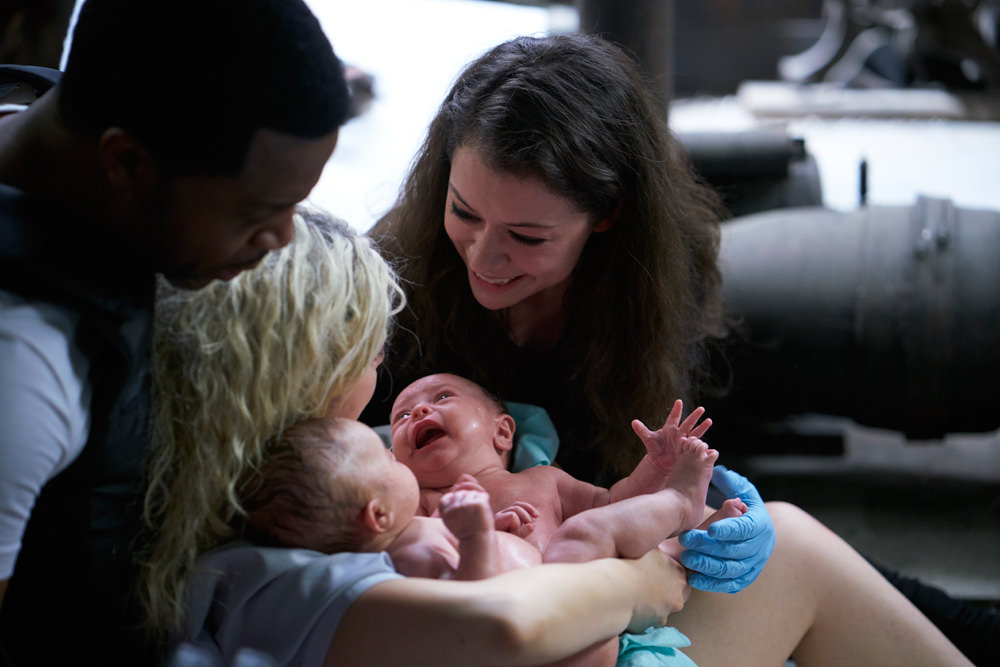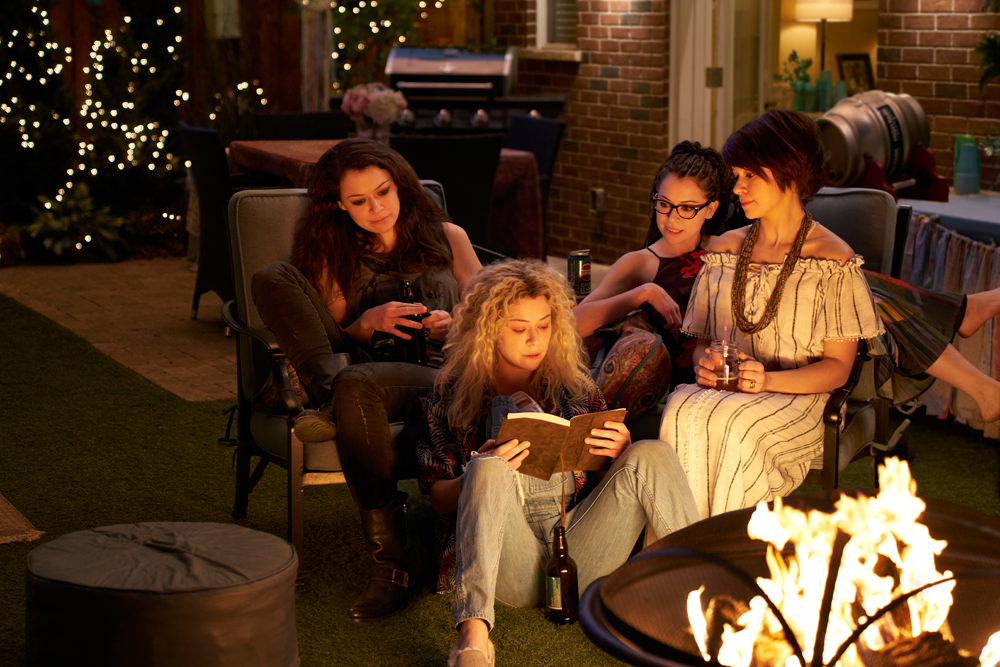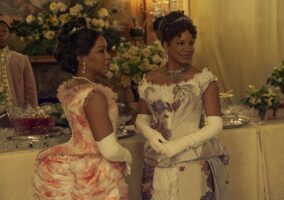It wasn’t an explosive series finale and it didn’t answer every single question as definitively as it could have (although we say this as viewers who are so confused at this point we wouldn’t even know what questions to ask), but Orphan Black quietly turned out the lights and shut the door on its story in the only way that truly made sense; by underlining its two main themes, giving its lead actress room to shine, and more or less dispensing with the plot.
Like so many shows with a convoluted science fiction or supernatural mythos built into the story (LOST, X-Files, Fringe), Orphan Black headed into its home stretch with far too much plot and far too many peripheral characters in its wake. And if we’re being honest about it, we have to admit that we stopped paying any attention to the story a good two seasons back in order to enjoy the show (which is why we mostly dispensed with reviewing it). As veterans of this kind of show, we never truly minded that the goals changed from week to week or that the various agendas of various characters become almost impossible to keep track of – especially since they all had a tendency to change on a dime. To our way of thinking, that’s to be expected when “twists and turns” aren’t a bug but the main feature of the writing of a series. And unlike most shows of this type, Orphan Black was uncommonly good at hewing very closely to its main themes of bodily autonomy and family bonds both genetic and emotional.
But if there’s one problem we can pin on the show now that it’s complete, it’s the one that became most obvious at the end: there were no good villains left in the story. What Sarah and her sisters wound up fighting for at the end was somehow too ephemeral and fleeting to describe. They were fighting to end the fight, more or less. Which is fine – and again, somewhat thematically appropriate – but the story lacked a true sense of finality to it. There was no Big Boss at the end. And maybe that was by design and tended to say something about the facelessness of the ideas they’d been fighting all along, but as a climax to a several-years-long tale in which some of the main characters suffered tremendous losses, it tended to lack much emotional punch. In the end, it just didn’t mean anything to see Sarah smash that lameass Westmoreland dude’s head in. Just as it was slightly less satisfying to see Helena take out Virginia in the end, since we had to suffer through more scenes of this supremely irritating character after she was already given the best possible send-off the show could have devised in the previous episode: “You are shit mother.”
But the show seemed to lean into this in the end, dispensing with the main story in the first 20 minutes of the finale and letting the rest of the show be about what it’s always been about: the characters coming together as a family. The victory of the Sestras wasn’t symbolized by the dead bodies of their vanquished oppressors, but by the quiet circle formed around the fire. The true heroism wasn’t embodied by Sarah’s boldness or Cosima’s brain, but by Helena shedding the last vestiges of her painful past and embracing the future as a mother. The montage of Siobhan coaching Sarah and Sarah in turn coaching Helena through childbirth was as close as the show has ever gotten to summing its entire story up in a few seconds; it’s about sisterhood, motherhood, and the right to determine how your body is used. And it worked because the bonds between all of these characters have been well established and beautifully portrayed. Other shows (most notably LOST) tried to jettison their plot in order to focus on their characters in the end, but the results – or at least, the audiences’ reactions to them – tended to vary wildly. The reason this ending worked so well was that Orphan Black, unlike so many other shows of its type, never faltered in the portrayal of the relationships at its center. It could get away with such a quiet, emotionally satisfying final half-hour because all of the relationships on this show are so rock-solid.
Of course, a HUGE part of the reason for that is Tatiana Maslany, who was given a final 30 minutes to do what she’s always done best in this show: bring a varied group of women to life and then have them all perfectly interact with each other. It remains one of the greatest technical performances in the history of television and we hope to see her enjoy a very long and fruitful career because of it. She’s more than earned it.
So often, when a series ends, one feels a “I don’t want to say goodbye to these characters” sentiment. For once, a beloved show of ours has ended and we found that we do want to say goodbye to characters we love. Because to stay with them is to indicate that their struggle hasn’t ended. And if there’s one thing Sarah Manning, her sestras, and her extended family deserved, it was blessed relief from all their woes.
Zosia Mamet RED CARPET SHOCKER at “The Sinner” New York Screening Next Post:
Zosia Mamet Got MiuMiu’d at the Venice Film Festival
Please review our Community Guidelines before posting a comment. Thank you!





